International Women's Day 2024: Inspiring Inclusion
Receive free IIBA updates and exclusive content!
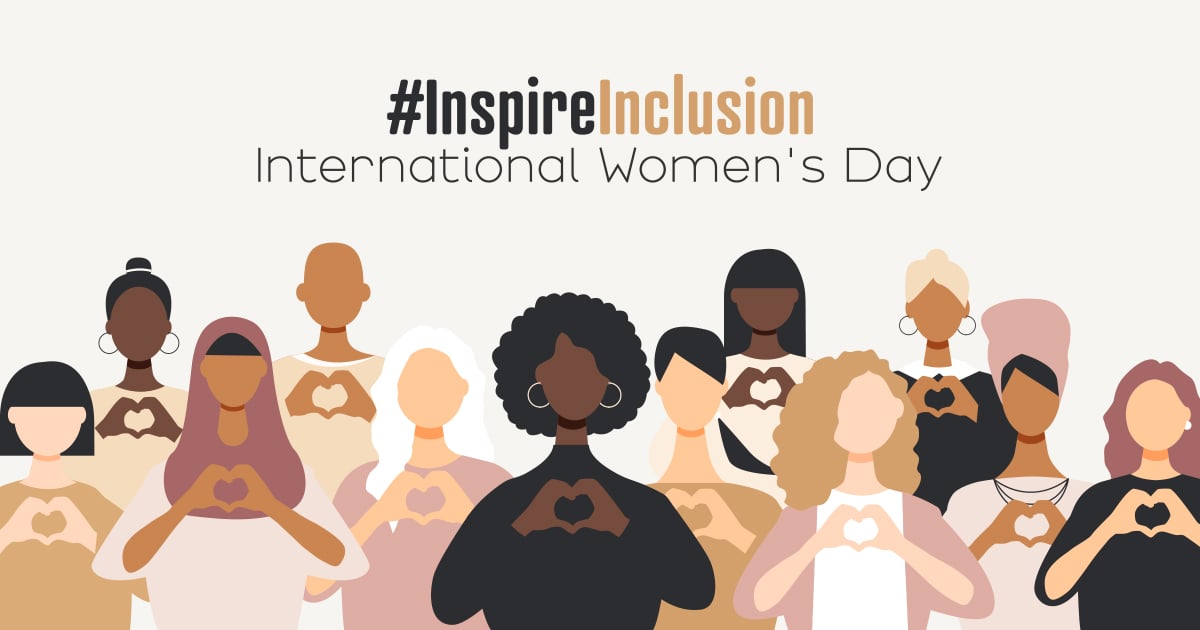
International Women’s Day is a chance to celebrate the achievements of women everywhere. This year’s theme, Inspire Inclusion, urges us to recognize the importance of diversity and inclusion in all parts of life. And the world of business analysis is no exception.
For years, women have been breaking barriers and shattering stereotypes in the business world. From starting their own companies to leading them, women hold influential positions that were out of reach not too long ago.
Their more prominent role in shaping business outcomes is backed by a recent finding in IIBA’s 2023 Global State of Business Analysis Report. As shown below, the women who responded to our annual survey earned slightly more than the men (by less than 1%) on average.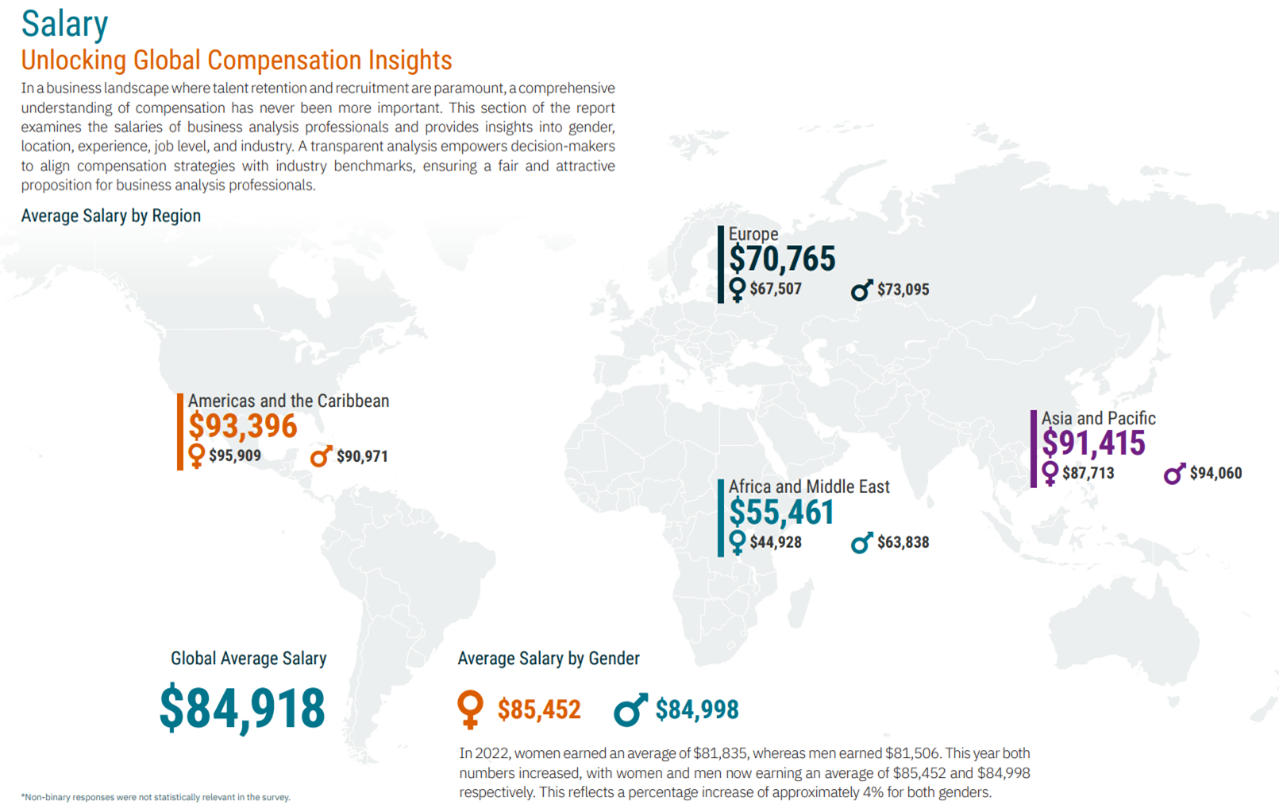
For context, in 2021 male respondents around the world earned 6% more than their female counterparts. Rather than speculating on the reasons behind this shift in earning power, I wanted to speak to the professionals themselves and get their take on this shrinking gap.
I asked four different women working in business analysis—Priyanka Agrawal, Kavya Andakudi Kesavan, Emily Tom, and Susan Moore—to share their thoughts on the finding and how best to promote inclusion in the workplace.
Rosalyn Tan: Does this statistic surprise you? If so, what are your thoughts? If not, why not?
Priyanka Agrawal: I’m happy to see the latest statistics regarding female business analysis earnings. Past research typically showed women earning less than their male counterparts for similar work. We must continue to strive for a more inclusive and equitable workforce, compensating individuals based on skills and contributions, irrespective of gender.
Kavya Andakudi Kesavan: This statistic didn't surprise me as I believe professionals should be paid fairly, irrespective of gender. I'm also a strong believer in equality among men and women. The statistic seems to vary from country to country and among various organizations. Hence, there should be no surprises in terms of salary, since women occupy as many business analysis roles as men.
Emily Tom: It’s nice to see that the average salaries for both women and men have increased by about 4% over the past year, which relates to the importance of business analysis. While women on average are earning more than men in the Americas, I wish there wasn’t such a disparity in the other regions. Women should earn equal pay if they are performing the same work with the same quality.
Susan Moore: In some ways, this doesn’t surprise me. Most of the business analysis professionals I’ve worked with over the years are women. They have been senior, seasoned professionals who are making a difference in their projects. They are paid for that experience and the outcomes they produce.
RT: Does this statistic reflect the situation in your location? Please explain.
PA: In our location, we're attentive to disparities by actively addressing and rectifying any observed inequities. Our commitment to fostering an inclusive environment involves ongoing efforts to promote fair opportunities for everyone.
KAK: It’s quite hard to comment about it as I generally research salary with respect to profession and not gender. I'm guessing there shouldn't be a difference in salary between genders. It only varies by profession and seniority.
ET: Even with economic pressures, business analysis professionals can earn a very good salary in Canada. The business analysis profession is mature and when a practitioner performs well, their salaries (and raises) can be justified.
SM: While it's encouraging to hear about the progress, I think this speaks to several factors in the business analysis space here in the US. Factors such as industry and sophistication of a company’s understanding of business analysis can impact salary. In addition, individual elements like seniority and location also play a role.
RT: How do you believe we can promote inclusion in our professional lives?
PA: Inclusion begins with “I.” It starts with self-awareness, especially for women, where we must first believe in our own worthiness to be included. This is achieved by practising micro-validations and micro-affirmations toward ourselves as opposed to micro-aggressions. As female leaders, our authentic self-reflection helps us shed unconscious biases, fosters belonging, and radiates confidence that inspires others.
As business analysis leaders, we promote inclusion by facilitating sessions that are safe spaces and allowing for diverse voices to shape our requirements. Using inclusive language when specifying requirements through user stories, knowing that identifying gaps isn't just analytical, gives us a chance to uplift the underrepresented. We can champion equity through policy reforms and infuse inclusivity in product design from conception to implementation. Beyond analysts, we are inclusivity architects.
KAK: We can promote inclusion by inculcating small behavioural changes, such as maintaining professionalism while conversing with colleagues, being appreciative of one's successes, treating everyone equally, and maintaining a healthy relationship with everyone around us.
ET: Whatever your gender, if you’re qualified to do the job then you deserve a seat at the table. We have to promote our capabilities and also empower our teammates to practise their business analysis skills. Having the confidence to do the job goes a long way in creating awareness of our profession and being included in fulfilling work.
SM: Promoting inclusion can be achieved through initiatives such as volunteering, mentorship, and internship programs. These programs serve to open doors for groups who may have previously been excluded from certain opportunities. By providing them with opportunities to build skills and confidence, we can pave the way for future job placements and foster a more inclusive workplace. As a facilitator, I understand the significance of creating such an environment. We can actively foster inclusivity by being allies or advocates for those who may need support in our workplaces.
Join Us for a Women's History Month Webinar!
As we celebrate Women's History Month throughout March, we invite you to participate in our upcoming webinar, "Women's History Month: Navigating Perfectionism for Professional Women," on March 27 at 12:00 ET (UTC-5).
Hosted by Dr. Amelia Reigstad, PhD, and IIBA Community Engagement Manager Susan Moore, this session aims to provide valuable insights and practical tools to help women break free from the constraints of perfectionism and thrive in their professional lives.
Register now to secure your spot!
#InspireInclusion
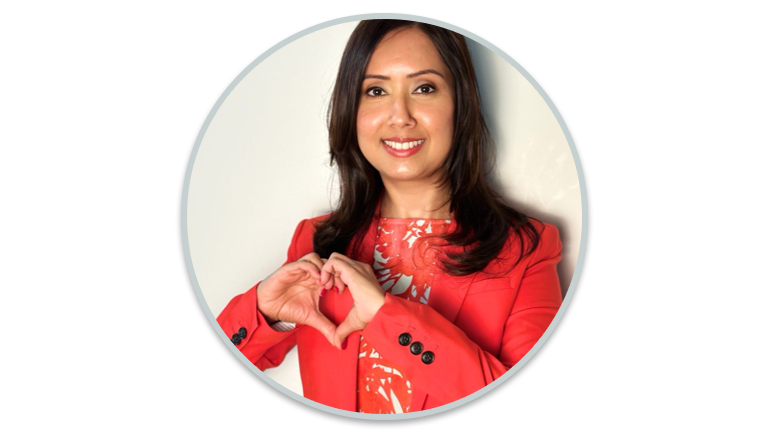
Priyanka Agrawal is a business analysis specialist at Translink, an IBM co-chair, and an instructor at McMaster University. She has over 20 years of experience in both public and private sectors.
Kavya Andakudi Kesavan is a business analyst at Tata Consultancy Services with over six years of experience. A self-described data enthusiast, she has deep knowledge of business analysis, machine learning, data analytics, and business analytics.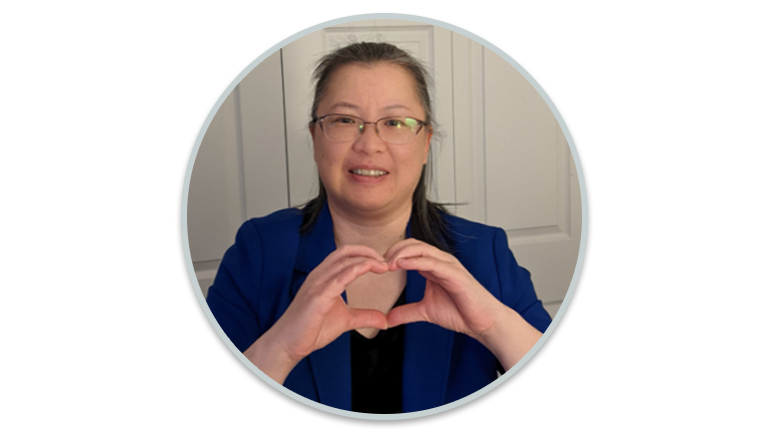
Emily Tom is a senior consultant with over 20 years of experience in business analysis, with expertise in the fields of procurement and finance. She is also the Regional Director of IIBA Americas Northeast Region.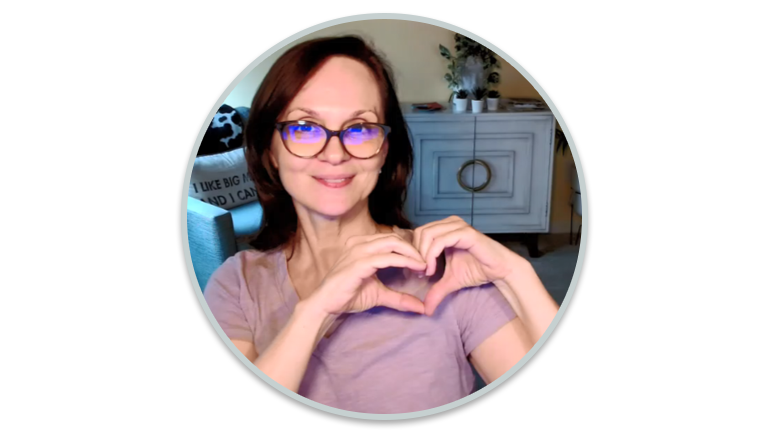
IIBA’s Community Engagement Manager, Susan Moore is a product management professional with over 20 years of experience in the finance and insurance industries. She also co-hosts the Business Analysis Live! podcast.
About the Author
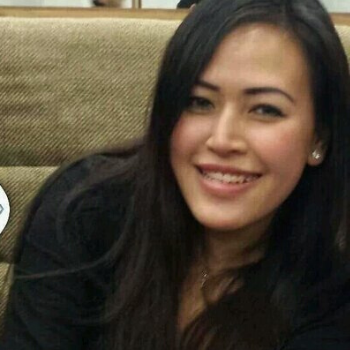
Rosalyn Tan eats, lives, and breathes social media. With more than seven years of experience in the field, working in different industries from hospitality to beauty and accounting, she joined IIBA in 2018 as our resident social media guru.



